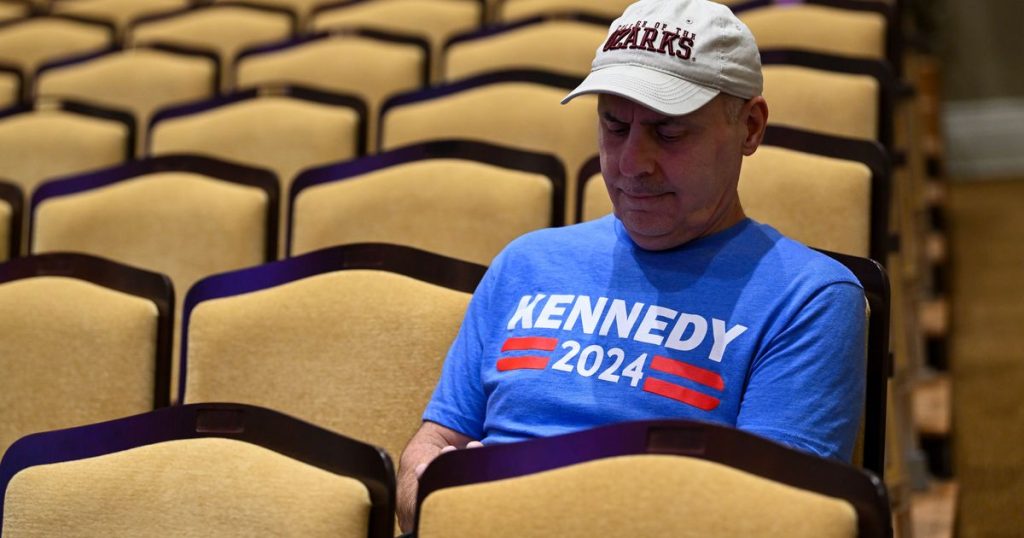A judge in Michigan ruled that Robert F. Kennedy Jr. must remain on the ballot in the state, despite his attempts to remove himself as a candidate after dropping his presidential bid. Kennedy withdrew from the race and endorsed former President Donald Trump after a long struggle to appear on ballots across the nation. He has been working to remove his name from key swing states, fearing he could pull votes from Trump. Michigan Secretary of State Jocelyn Benson stated that state law prohibits minor-party candidates from withdrawing once selected as their party’s nominee. Kennedy had been nominated by the Natural Law Party to qualify for the Michigan ballot.
Kennedy sued, claiming the state’s votes could be “diminished and rendered invalid” if he remained on the ballot. The Michigan Court of Claims Judge rejected his request, stating that elections are not games and officials are not obligated to honor the whims of candidates for public office. Kennedy’s lawyer argued that keeping his name on the ballot would jeopardize ballot integrity. Kennedy himself stated that he was attempting to get off the ballot in states where he could be a “spoiler and cause harm to President Trump.” Despite his efforts to be removed from some states, he is actively trying to remain on the ballot in others, such as New York.
Trump’s allies have criticized election officials in swing states that ruled Kennedy must stay on the ballot. Former Trump attorney Rudy Giuliani called Secretary of State Benson “corrupt” and accused her of engaging in “election interference” to keep Trump out of the White House. Benson fired back, clarifying Michigan law, which states that once a candidate from a minor party is nominated, they cannot withdraw. Kennedy could file an appeal in response to the judge’s decision to keep him on the Michigan ballot.
Kennedy’s efforts to remove his name from ballots in key swing states have been met with resistance from election officials and legal challenges. Despite his withdrawal from the race and endorsement of Trump, Kennedy’s candidacy remains a point of contention. In some jurisdictions, he is actively trying to remain on the ballot, while in others, he is attempting to have his name removed to avoid potentially pulling votes from the former president. The decision to keep Kennedy on the Michigan ballot highlights the complexities of election laws and the impact of minor-party candidates on the electoral process.
The legal battle over whether Robert F. Kennedy Jr. should remain on the ballot in Michigan reflects the broader challenges faced in ensuring fair and transparent elections. Kennedy’s attempts to remove himself from the ballot have raised concerns about ballot integrity and the potential impact on the election outcome. With Trump’s allies criticizing election officials and legal disputes ongoing, the situation underscores the importance of clear and consistent election laws to uphold the integrity of the democratic process. Despite the judge’s ruling that Kennedy must stay on the Michigan ballot, the controversy surrounding his candidacy continues to be a topic of debate in the lead-up to the election.


